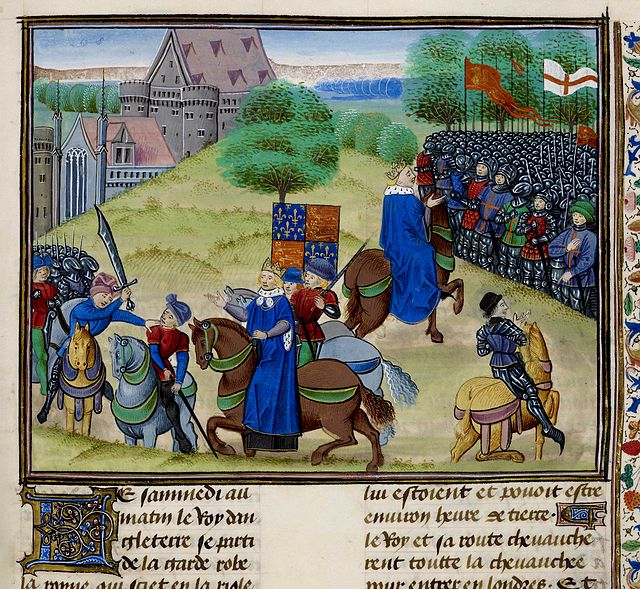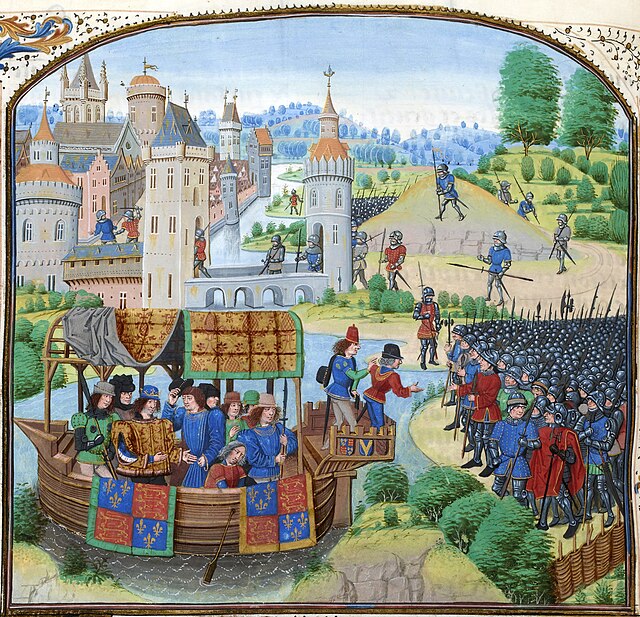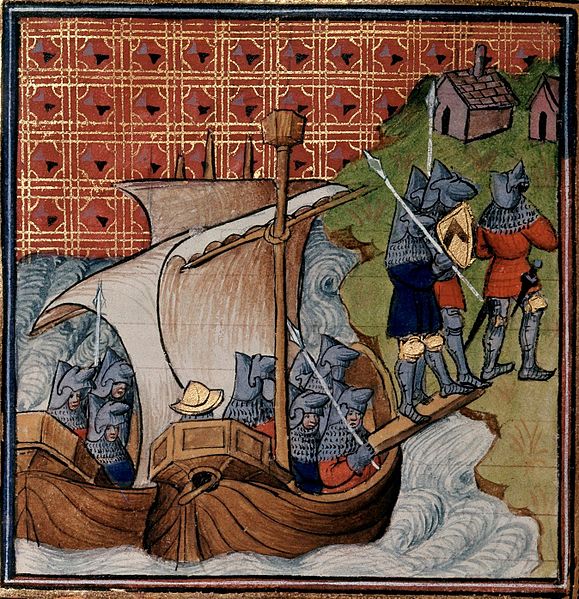Walter "Wat" Tyler was a leader of the 1381 Peasants' Revolt in England. He led a group of rebels from Canterbury to London to oppose the institution of a poll tax and to demand economic and social reforms. While the brief rebellion enjoyed early success, Tyler was killed by officers loyal to King Richard II during negotiations at Smithfield, London.
Tyler's death (left to right: Sir William Walworth, Mayor of London (wielding sword); Wat Tyler; King Richard II; and Sir John Cavendish, esquire to the king (bearing decorated sword)
Engraving by Anker Smith
The death of Wat Tyler, illustrated in the Chronicles of Jean Froissart
The Peasants' Revolt, also named Wat Tyler's Rebellion or the Great Rising, was a major uprising across large parts of England in 1381. The revolt had various causes, including the socio-economic and political tensions generated by the Black Death in the 1340s, the high taxes resulting from the conflict with France during the Hundred Years' War, and instability within the local leadership of London.
The boy-king Richard II meets the rebels on 14 June 1381, in a miniature from a 1470s copy of Jean Froissart's Chronicles.
English soldiers landing in Normandy, c. 1380–1400, during the Hundred Years' War
Peasant longbowmen at practice, from the Luttrell Psalter, c. 1320–1340
15th-century representation of the cleric John Ball encouraging the rebels; Wat Tyler is shown in red, front left







